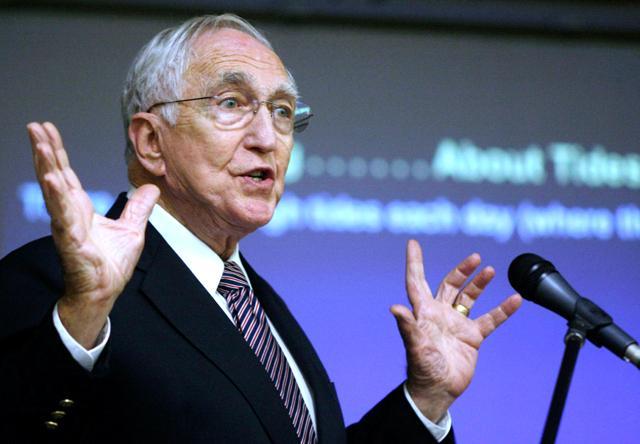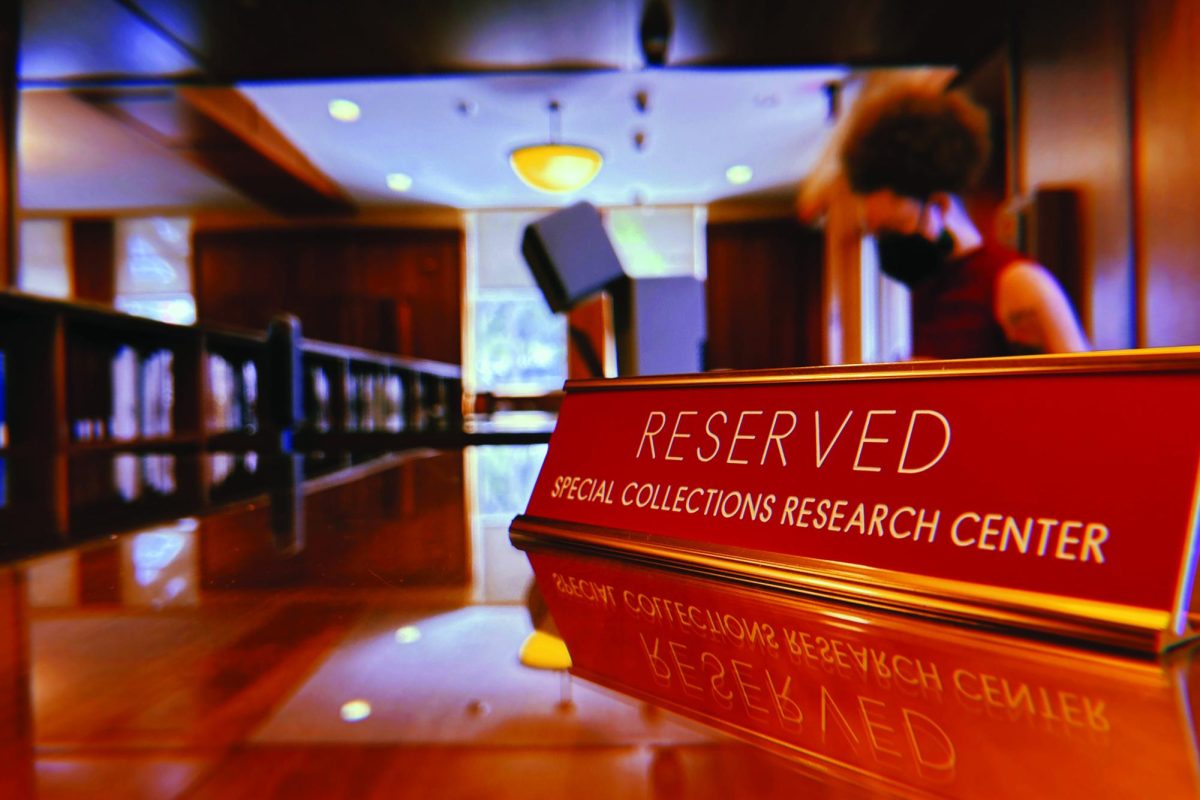Former Ambassador Edward Peck was in Raleigh last week on the final leg of his North Carolina speaking tour, holding presentations at the Burning Coal Theatre and Meredith College. The Raleigh presentations, titled “Neither Quick, Nor Easy: Doing What’s Best for America, Israel, Palestine and the Middle East – An Effort To Provoke Thoughts, Not People,” were held Thursday evening and Friday afternoon, and were open to the public and students from all schools. As a member of the Peace with Justice Coalition, Peck advocated for even-handedness in foreign policy and an understanding of relations with the Middle East. An expert on the Middle East and terrorism, Peck had much to say about past political administrations and the foreign policies that have been implemented throughout the years. The fundamental error in policy, Peck said, is the failure to consider alternate perceptions of politics, government and culture. The former ambassador said he thinks the United States is the best country in the world, but as he would argue, not all countries agree on the status and credibility of one nation. “Perception is everything. [We] think the U.S . is the greatest nation, but that’s our perception. What about other countries’ perceptions of us?” Peck said. During his presentations, Peck discussed basic Middle East assumptions and how to understand differing nations, and political and societal systems. In an effort to understand the Middle East as a whole, Peck said it’s important to consider that global regions are distinctly different and therefore cannot be grouped together. “There is a powerful, misleading tendency to lump all nations and communities into one. But there are many differences,” Peck said. Peck said narrow-minded thinking creates stereotypes and such groupings make it impossible to think logically and rationally. “If you’re thinking stereotypes, you’re not accepting new information,” Peck said. The former ambassador’s talks weighed heavily on understanding different nations and the factors of their independence. Peck said none of the Middle East nations have been independent for more than 100 years, and their understanding of democracy will take time. According to Jeffrey Florence, a junior in psychology, there is a fine line between doing what is best for a country and doing too much. Florence said if the U.S . wishes to improve relations with the Middle East, it’s imperative to show consideration and more than simply a desire to take over. “It’s one thing to do what we think is best, but the nations of the Middle East may feel stripped of their say,” Florence said. Peck also stressed the importance of following through with set policies and actions. He said the political world can become a “dynamic hypocrisy” when national leaders do not carry out their promises. “[It] is what happens when you let the whole world see that you don’t practice what you preach,” Peck said. Alexis Gajadhar , a junior in agricultural sciences, said the first step in understanding different cultures and political systems is listening. According to her, a simple invasion won’t help any situation. “The U.S . should listen to the needs of other countries first in order to develop a firm understanding of those nations that are different,” Gajadhar said. Because the United States is wrapped in individualistic culture, Gajadhar said it’s important for citizens to think outside the box of common perceptions. “We should think about how we are perceived [as a nation as a whole] by others,” Gajadhar said.
Former ambassador concludes speaking tour in Raleigh
Anna Riley, Staff Writer
• Oct 30, 2011
• Oct 30, 2011
Former U.S. Ambassador Edward Peck talks about Middle East relations Friday, Oct. 28 2011 in the Kresge Auditorium at Meredith College. Peck used humor and personal stories about his 32 years in the State Department to paint a picture of life in Israel, Palestine, and Egypt. “How do you get everybody living in peace and security in the middle east?” Peck said. “It ain’t going to be quick, it ain’t going to be easy, but it sure is necessary.” Photo by Tim O’Brien




